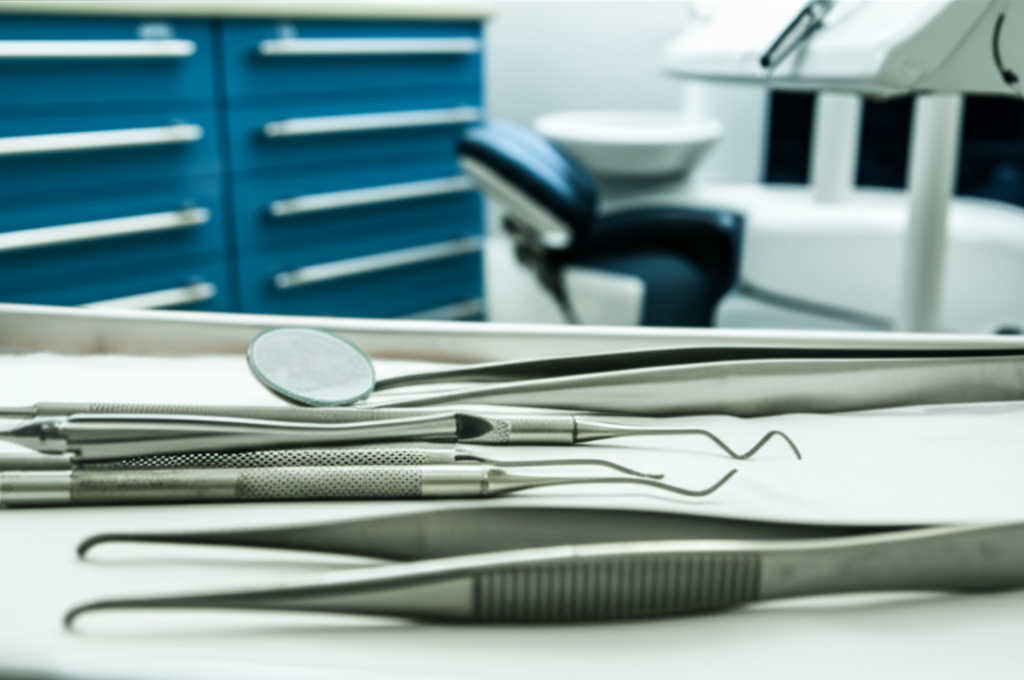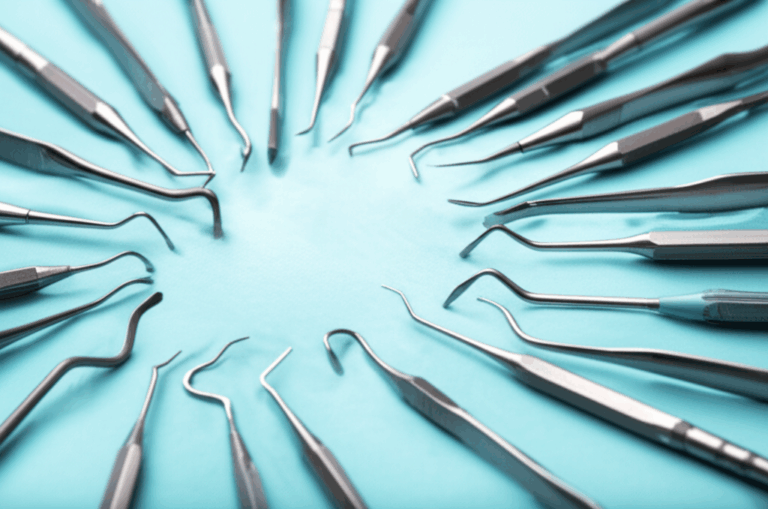
How to Qualify as a Dentist: My Step-by-Step Guide from Dream to Dental Licensure
Table of Contents
- Getting Your Bachelor’s Degree
- Basic Prerequisite Classes
- Getting Useful Experience
- What is the DAT?
- Tips for Preparing for the DAT
- The Application Process
- What to Include in Your Application
- How to Handle Interviews
- DDS vs. DMD
- Classes and Hands-On Training
- National Board Dental Examination (NBDE/INBDE)
- Regional Practical Tests
- Different State Rules
- Moving to Another State
- Picking a Specialty
- Residencies & More Education
Introduction: My Journey into Dentistry
Deciding I wanted to be a dentist didn’t happen in one day. I remember loving biology in high school, but it wasn’t until I spent time with my family dentist—who really cared about his patients—that I started to think seriously about this job. If you’re reading this, you might be dealing with the same questions. My hope is to share what I learned, so you know what to do (and even which mistakes to avoid).
Becoming a dentist takes more than just good grades. You need grit, you need to push through when things get hard, and you need to know what comes next. I’ll break it down for you—including what to expect from dental school applications, the tough DAT, licensure tests, and what life is like after graduation.
Let’s get started.
Laying the Foundation – Undergraduate Education & Prerequisites
Getting Your Bachelor’s Degree
When I got to college, people kept saying, “You have to be a biology major to be a dentist.” Let me bust that myth right now: you don’t have to choose any certain major, but you do need a lot of science classes. I picked biochemistry because most of the needed classes were built in. I knew others who majored in chemistry or even psychology (but they took many science electives).
No matter what you study, make sure your grades are high—especially in science classes. Most students who get into dental school have a GPA between 3.5 and 3.7. Good grades don’t just look nice—they show dental schools you can handle tough study loads.
Basic Prerequisite Classes
Every dental school has classes they need you to take before you can apply. For me, that meant a busy schedule with:
- Biology (with lab)
- General Chemistry (with lab)
- Organic Chemistry (with lab)
- Physics
- Biochemistry
Some schools also wanted things like microbiology, anatomy, physiology, or statistics. Make sure to check what your dream schools list as requirements. Here’s a tip: Don’t skip out on English or communications. You’ll be writing essays and talking to patients a lot.
Getting Useful Experience
Dental schools also want to see that you care about helping people and know what dentists do all day. Here’s what worked for me:
- Shadowing: I spent about 75 hours watching different dentists work to learn what the job really feels like.
- Volunteering: Helping out at free clinics opened my eyes to the good side of the job and gave me stories for interviews.
- Research: If you like science, joining a research project can help your resume, but it isn’t a must.
- Manual Skills: Doing things with my hands—like painting and woodworking—actually helped me later when I started learning dental skills.
The Gateway Exam – Mastering the Dental Admission Test (DAT)
What Is the DAT?
The DAT is the Dental Admission Test. It’s pretty tough and has a big say in where you get into school. It checks if you know your science basics, can spot patterns (perceptual ability), understand what you’re reading, and do math problems.
A good score is usually 20 or higher on the Academic Average and Perceptual Ability sections. It’s hard, but if you get ready the right way, it is doable.
Tips for Preparing for the DAT
I started studying about half a year before my DAT, using self-study books, online questions, and taking full practice tests. For some topics, I liked group studying, for others I studied alone.
Here’s what helped me:
- Pick a study schedule and stick to it.
- Use different ways to learn (books, internet, videos).
- Work on your weak points first.
- Take full-length practice exams to feel what test day will be like.
You’ll probably never feel totally ready, but staying steady is better than trying to learn everything the night before. For the perceptual ability part, puzzles or even games can help you get better.
Applying to Dental School – The Real-World Checklist
The Application Process
Dental school applications are a long process. Most people apply one year ahead of when they want to start. I applied using ADEA AADSAS, which lets you apply to many schools with one main packet.
Here’s what my timeline looked like:
- June: Main application opens
- July – October: Schools send extra questions and ask for interviews
- December: First offers to join a school come out
What to Include in Your Application
There’s a lot to get ready for a dental school application:
- Transcripts: Order all your class records early.
- DAT Scores: You can apply even before you know your scores, but it’s better to submit everything early.
- Personal Statement: Tell your story. I talked about how volunteering at a free clinic changed my view of health care.
- Letters of Recommendation: Make good connections with teachers and dentists so you can get reference letters on time.
- Other Activities: Things like leading clubs, community work, job experience, or research help show who you are.
How to Handle Interviews
If you get invited, interviews are your time to show who you really are. I saw mine as a chat, but practiced answers to questions like:
- Why do you want to be a dentist?
- Tell me about a time you got through something tough.
- What do you do when you fail?
Doing practice interviews with friends helped a lot. Just be real, show you care, and show you know how to talk to people. Dental schools want smart but also kind students.
Dental School – Earning Your DDS or DMD Degree
DDS vs. DMD
When I got my acceptance letter, I noticed the names DDS (Doctor of Dental Surgery) and DMD (Doctor of Medicine in Dentistry). Are they different? I asked Dr. Joe Dental, a respected oral surgeon I shadowed, and he told me it’s just a name. The training is the same—both are dentists.
Classes and Hands-On Training
Dental school is a four-year program, usually with two years of classes first, then two years seeing patients.
- First 2 Years (Preclinical): You take science classes like anatomy, biochemistry, pharmacology, and practice on fake teeth before you see real people.
- Last 2 Years (Clinical): Now you work with patients (under a teacher’s watch), learning different areas like oral surgery, kids’ dentistry, or making crowns.
Dental school is hard both on your mind and body. Long hours in lab, lots of studying, and balancing everything is tough. The support from classmates and teachers helps a lot.
My tip: Stay organized and don’t be afraid to ask for help when you need it.
National and Regional Board Examinations – Proving Competency
National Board Dental Examination (NBDE/INBDE)
To graduate and move on, you need to pass the national board exam. Most places now use the INBDE, a single test that checks everything at once.
It’s more about solving real patient problems than just remembering facts. Start studying early, do practice questions, and study in groups if you can.
Regional Practical Tests
After the INBDE, many states also want you to take a practical exam. Here you work on a real or fake patient, watched by an examiner (which is nerve-wracking!). These exams check that you can really do dental work safely.
They’re not easy, but your school will train you for them.
State Licensure – The Final Hurdle to Practice
Different State Rules
Each state has different rules for what it takes to become licensed. In my state, I had to show my diploma, pass the big exams, get a background check, and pass a law and ethics test.
Getting all the papers ready is a lot, but when you finally get your license, it feels great.
You also need to keep learning after you’re licensed—most states want you to do extra classes every year.
Moving to Another State
Thinking of moving later? Some states accept your license from another place, but others make you do extra steps. Always check before moving!
Beyond General Practice: Dental Specialties and Extra Training
Picking a Specialty
After dental school, you can start working or go back and pick a specialty (like braces, kids’ teeth, surgery, and more). I thought about surgery, so I did extra rotations and talked to people already in those programs.
Specialty training lasts 2-6 more years and means more tests. It’s tough to get in, but if you love a certain field, it can be worth it. General dentists do a bit of everything, and that’s a good path too.
Residencies & More Education
If you want more practice before working alone, try a General Practice Residency (GPR) or Advanced Education in General Dentistry (AEGD). I did a GPR and worked in hospitals on stuff I never saw in school.
These programs help build your confidence and skills, and can lead to cool jobs—like in the public health service or with the military.
Key Data and Stats: What You Need to Know
Here are some numbers that helped me make up my mind:
| Aspect | Typical Range / Average (USA) | Notes |
|---|---|---|
| Education Duration | 4 years college + 4 years dental school | Normal path |
| Dental School Acceptance | 4-10% of applicants get in | It’s competitive |
| DAT Score | 19-21 is a good target | Max is 30 |
| Average Admitted GPA | 3.5 – 3.7 science/overall GPA | Strong grades matter |
| Total Cost (Tuition) | $250,000 – $350,000+ (4 years, with living costs) | Be ready for debt |
| Board Pass Rates | 85-90% first-time pass rate for INBDE | From accredited schools |
| Dentist Salary | $160,000+ (median, general dentist); more for specialists | Based on BLS numbers |
| Job Outlook | 4% growth 2022-2032 (steady demand) | BLS |
Dental school costs a lot—expect to have loans. Try to budget and look for scholarships or help if you can. For more on real dental practice or what patients want, check dental practical guide.
The Real Deal – Challenges and Rewards
Is dental school hard? Yes. Long days, even some nights, and a lot of times when I thought, “Is this worth it?” The classes, long hours, and pressure can really get to you, but helping people smile or get rid of pain makes it all worth it.
Some people work for others at first, and some open their own clinics. If you like business, running your own office is exciting, but you’ll need good business basics and might want to know helpful people at places like digital dental lab to make things easier.
Dentists help each other. I met great mentors and friends during school and in my job. Don’t be shy to ask for help—everyone started as a beginner somewhere.
Conclusion: Is Dentistry Worth It?
If you like science, art, and helping people—if you want a job that’s both hard and rewarding—dentistry might fit you. The road is long and tiring, but the payoff is nice. Every day, I help people and know I matter. There’s real financial stability and respect too.
Whenever I get tired, I remember the first patient who hugged me after I fixed her tooth. Those moments made all the stress and tests worth it.
If you’re sure about this, take it slow and steady—talk to mentors, keep asking questions, and never stop learning. The world always needs more good dentists. Maybe that can be you.
References & Review
This guide was made using tips from professional dentists, including Dr. Joe Dental, who gave advice from his years of work. Stats and info were checked with the American Dental Association, the American Dental Education Association, and the U.S. Bureau of Labor Statistics.
For more info on modern dental technology or what labs can do to help your business, see places like china dental lab.
Good luck on your journey! If I could do it, so can you. Stay curious and keep going—the world of dentistry needs you.








